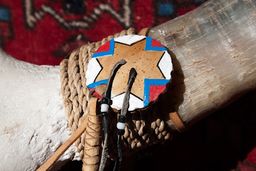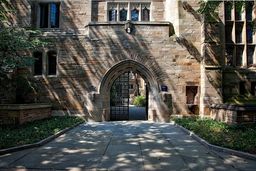Decolonizing Education

The knowledge bases of Indigenous peoples, as well as other neglected knowledge bases, can be sources of inspiration, creativity, and opportunity. They can also contribute to humanity, equality, solidarity, tolerance, and respect.
Education is the ideal location for transformative work to occur. However, dismantling colonial bias to establish meaningful inclusion is a complex and daunting task. Our postsecondary education system was constructed generations ago based on standards imposed by European colonists intended to shape the minds of students from dominant groups. In this way, among others, the relationship between society and education is inextricable. Each represents and thus recreates the other. Despite legislation and initiatives focused on accessibility and inclusion, our education system still has a long way to go to welcome and to support the learning of students who live with disability, who experience racism, sexism, cissexism, audism, sanism, antisemitism, Islamophobia, homophobia, and transphobia, and who face poverty. Our education institutions, like all institutions, move slowly. As a result, many of today’s processes, policies, and standards, as well as the teaching and learning methods, continue to mirror that colonial standard.
Implementing equity founded on decolonized curricula, in the Canadian context, involves understanding our historical roots in colonization and how it has shaped our education system and how information and ideas are represented. It also involves disrupting the mythical norms that have shaped our present teaching and learning experience in order to create new ones.

Article 15 of the United Nations Declaration on the Rights of Indigenous Peoples (UNDRIP) asserts that Indigenous cultures, traditions, histories, and aspirations “shall be appropriately reflected in education and public information."
Educators and all involved in the creation of learning spaces in our institutions have a combination of social locations. We are also all products of academia. Whether or not we struggled or enjoyed the journey, we participate now in an inequitable education system where we are strongly supported by that system to pass on the same inequity to our learners. We do this by using methods, language, and conventions that are veiled and exclusionary because the colonial norms have not been challenged. The hidden (and not so hidden) values and practices that we have inherited hinder learning by contradicting the identities and experiences of most of our students.
Dr. George Dei discusses the role of scholars to challenge the academy (Runtime: 26:26 min). CC is autogenerated.
As mentioned in the Introduction to UDL and Representation video, knowledge representation is hierarchical. Rather than being an option, the use of text is favoured and prioritized over other means because of the historical and colonial primacy of textual knowledge sharing. The assumption that one method of presenting information is superior to others (e.g., text vs. audio) not only limits learners’ capacity to deeply integrate and make connections between content but also serves to marginalize individuals for whom oral or image-based transfer of information is preferred or cultural.
Knowledge production is also hierarchical. In terms of our academic course materials and libraries, knowledge that is prioritized is also the knowledge that dominant culture (re)produces. The “advancement of Western science and the evolution of theories of knowledge went hand in hand with positivism (or empiricism)” (Held, 2019). Generally, these narrowly posit that reality is logical, is measurable, and applies to a world outside of oneself. The overarching power of empiricism systematically disappeared or appropriated original voices, ideas, and experiences in its evolution.

Ontario’s universities are built on models of scholarship developed in the United Kingdom and Western Europe. Founded by and for European settlers, Ontario’s universities have excluded Indigenous voices and played an active role in encouraging the colonization of Indigenous lands, nations, and peoples.